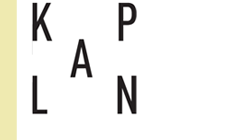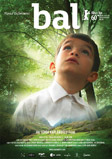14 July 2011
David Jenkins / Time Out London
Honey
Like countryman and fellow director Nuri Bilge Ceylan, Semih Kaplanoglu possesses a keen eye for ravishing pictorial beauty, especially when it comes to locating a quiet majesty in the Turkish lansdscape that somehow evokes and distils a sense of unease. ‘Honey’ is his latest work, a precise and psychologically involving Oedipal drama that makes up the final chapter of his so-called ‘Yusef Trilogy’ – preceded by ‘Egg’ (2007) and ‘Milk’ (2008) – which reels off salient episodes from the life of the eponymous Yusef, but told in reverse chronology.
So where in ‘Egg’ we saw Yusef as a middle-aged poet, here he’s a stuttering child struggling to forge a meaningful relationship with his taciturn father. Living in a hillside shack, the world-weary patriarch risks life and limb for his family by climbing trees to harvest wild honey, while the pint-sized Yusef (Bora Altas, whose near-silent performance offers a sublime encapsulation of innocence and longing) is thrown into a frenzy when his father fails to return from one particularly treacherous foraging trip.
Filming in long, meticulously sculpted takes, Kaplanoglu is especially good at emphasising elements within the frame with inventive use of focus and the positioning of the camera. Whether filmed in a bustling classroom or wandering along across a rocky verge, Yusef always feels removed from the world, an observer rather than a participant in life’s miniature dramas. One of the themes of this gorgeous film is man’s precarious dependence on nature, but it also explores how behavioural nuances vary in the presence of fathers and mothers and how – as distressing as it may be – tragedy can give birth to artistic maturity. A deserving winner of the Golden Bear at the 2010 Berlin Film Festival.
|
|
|




